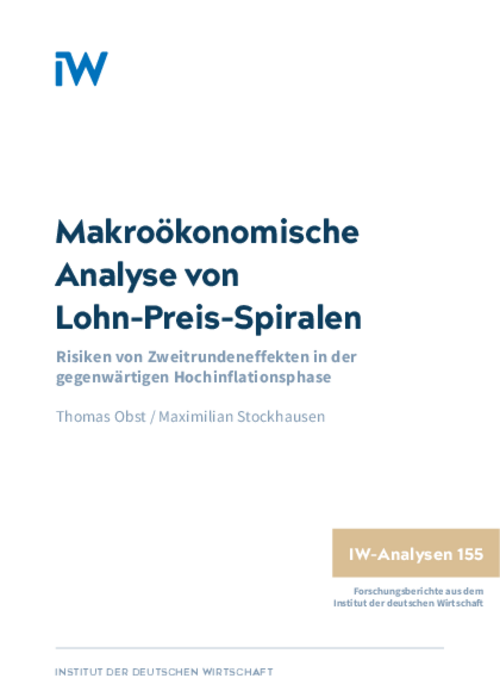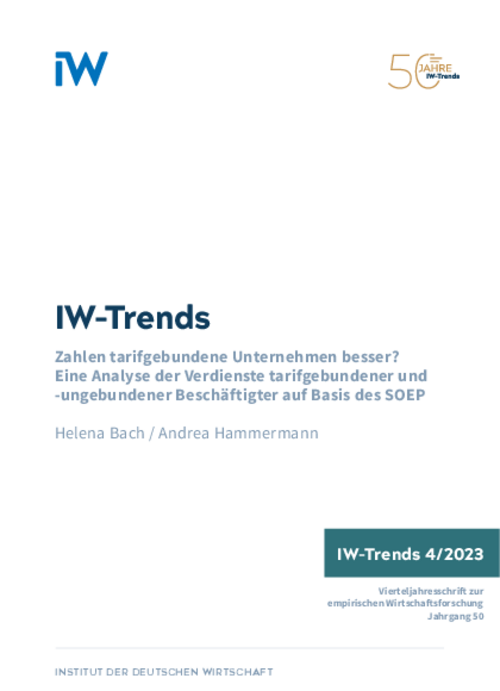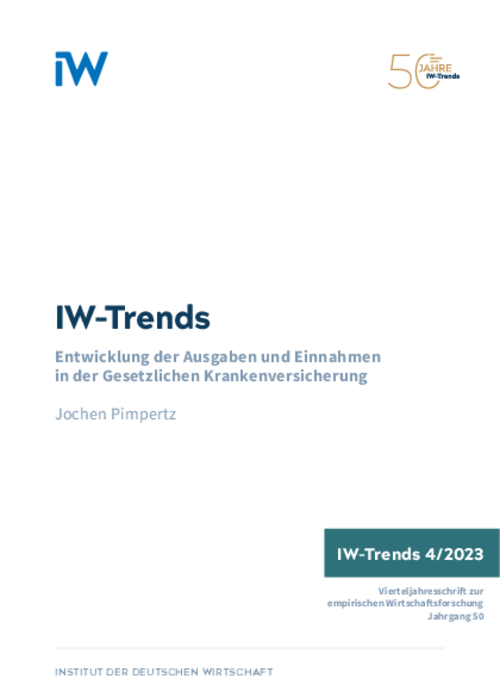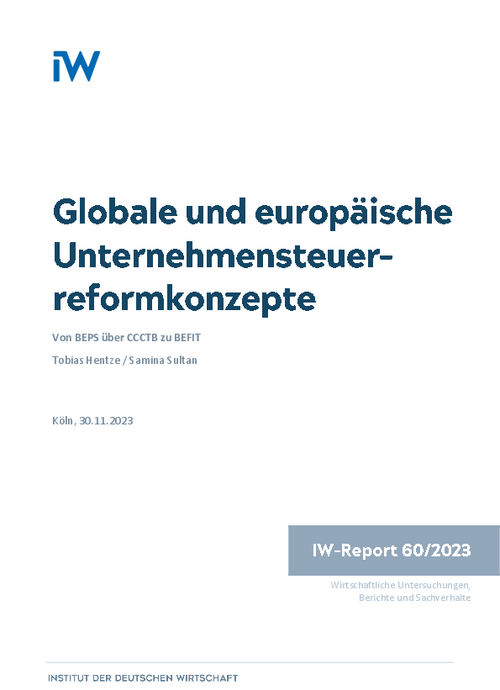The demographic transition, digitalisation and decarbonisation all pose major challenges for the state's welfare, spending and fiscal policies. In this Research Unit, our researchers use theoretical and empirical analyses as a basis for discussing the merits of proposed reforms and put forward their own solutions. In addition to the fiscal consequences of such measures, they also investigate the incentives they create and the distribution effects for companies and private households. The aim is to develop ways of achieving a sustainable fiscal policy while also providing affordable, effective and efficient insurance against life's major risks: old age poverty, illness and long-term disability. To meet these needs over the long term, it will be necessary to ensure a competitive business environment for the healthcare industry.
- Home
- Institute
- Main research topics
- The State, Taxes, Social Security
The State, Taxes, Social Security
Contact Persons

Dr. Martin Beznoska
Senior Economist for Financial Policy and Tax Policy
Tel: +49 30 27877-101 Mail: beznoska@iwkoeln.de @mbeznoska
Dr. Tobias Hentze
Head of the State, Taxes, Social Security Research Unit
Tel: +49 221 4981-748 Mail: hentze@iwkoeln.de
Dr. Björn Kauder
Senior Economist for Financial Policy and Tax Policy
Tel: +49 221 4981-516 Mail: kauder@iwkoeln.de
Dr. Jasmina Kirchhoff
Project Manager for Pharmaceutical Location Germany
Tel: +49 221 4981-813 Mail: kirchhoff@iwkoeln.de Jasmina Kirchhoff
Dr. Jochen Pimpertz
Head of the State, Taxes, Social Security Research Unit
Tel: +49 221 4981-760 Mail: pimpertz@iwkoeln.de Jochen Pimpertz
Dr. Ruth Maria Schüler
Economist for Social Security Systems and Income and Wealth Distribution
Tel: +49 221 4981-885 Mail: schueler@iwkoeln.de Ruth Maria Schüler
Simon Schumacher
Economist for Pharmaceutical Location Germany
Tel: +49 221 4981-866 Mail: simon.schumacher@iwkoeln.de
Dr. Maximilian Stockhausen
Senior Economist for Social Security Systems and Income and Wealth Distribution
Tel: +49 30 27877 134 Mail: stockhausen@iwkoeln.de Maximilian Stockhausen @StockhausenEconAll news

A Macroeconomic Analysis of Wage-Price Spirals
The subject of this Analysis is the forms that wage-price spirals can take and how they influence macroeconomic stability and inflationary trends in Germany.
Thomas Obst / Maximilian Stockhausen IW

Pharmaceutical industry: Increasing pressure on the labor market
The shortage of skilled workers poses significant challenges for pharmaceutical companies in Germany and is expected to become increasingly problematic in the context of demographic changes. Concerning Germany's positioning in the international competition among innovative pharmaceutical locations, this shortage could become a hindrance.
Lydia Malin / Simon Schumacher IW

Do Companies Bound by Collective Agreements Pay Better?
When discussing the gradual erosion of collective bargaining coverage, reference is often made to the importance of collective agreements in securing high salaries for employees.
Helena Bach/Andrea Hammermann IW

Expenditures and Revenues in Germany’s Statutory Health Insurance
Almost annually recurring deficits in Germany’s statutory health insurance system have led to a steady rise in the contribution rate, a percentage of earned income.
Jochen Pimpertz IW

Global and European corporate tax reform concepts
The harmonization of corporate taxation at an international level has been on the political agenda for many years. Both the Organization for Economic Cooperation and Development (OECD) and the European Commission have presented reform projects in this regard, which are now awaiting political implementation.
Tobias Hentze / Samina Sultan IW
Your search returned an incorrect status. You may have selected too many filters. You can jump back to your previous selection to adjust your search.
With our new newsletters on the following topics you no longer have an IW publication.
We send out our topic-specific newsletters every month.
Register here
With our new newsletters on the following topics you no longer have an IW publication.
